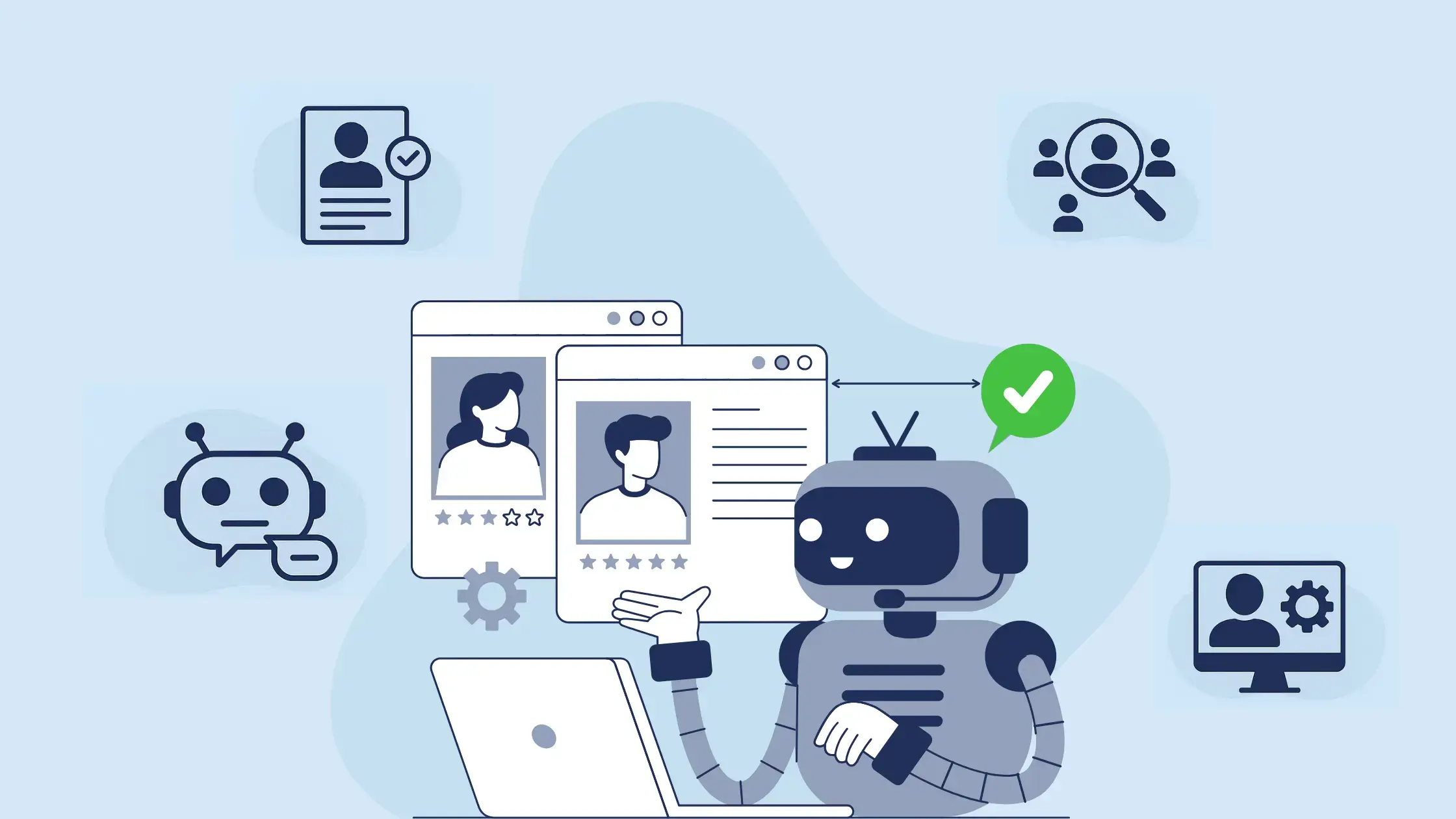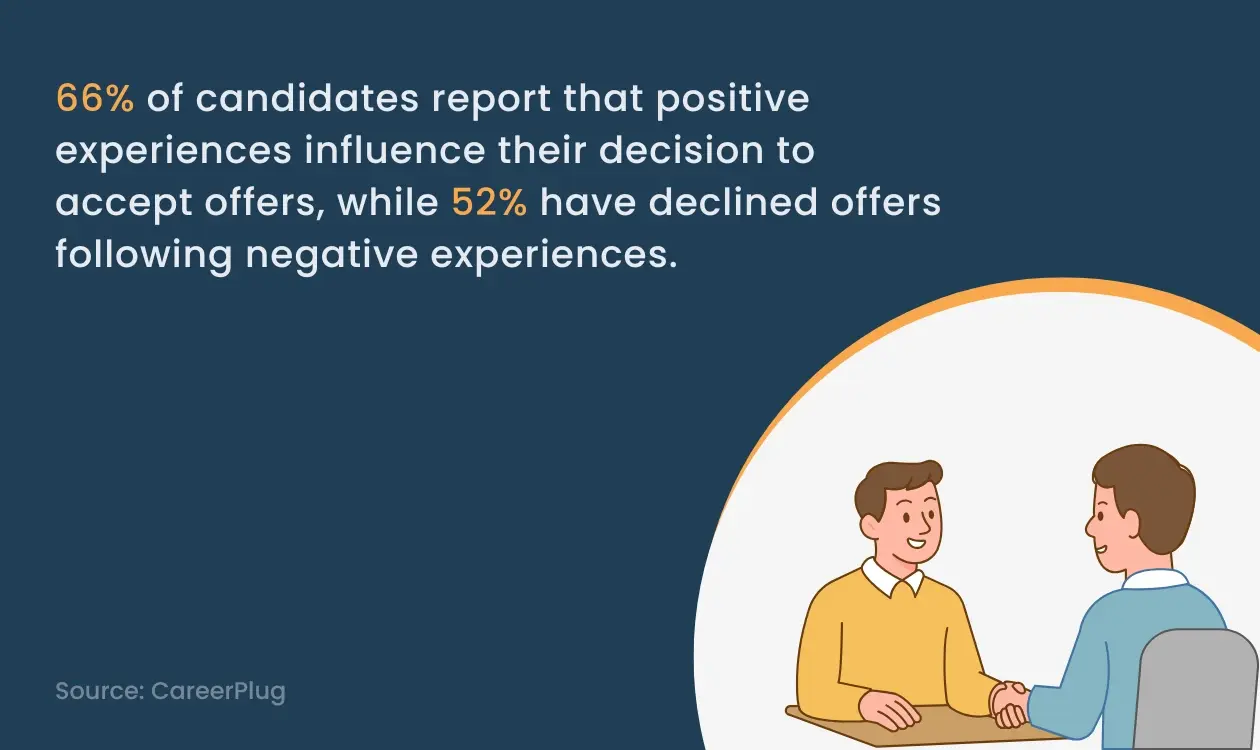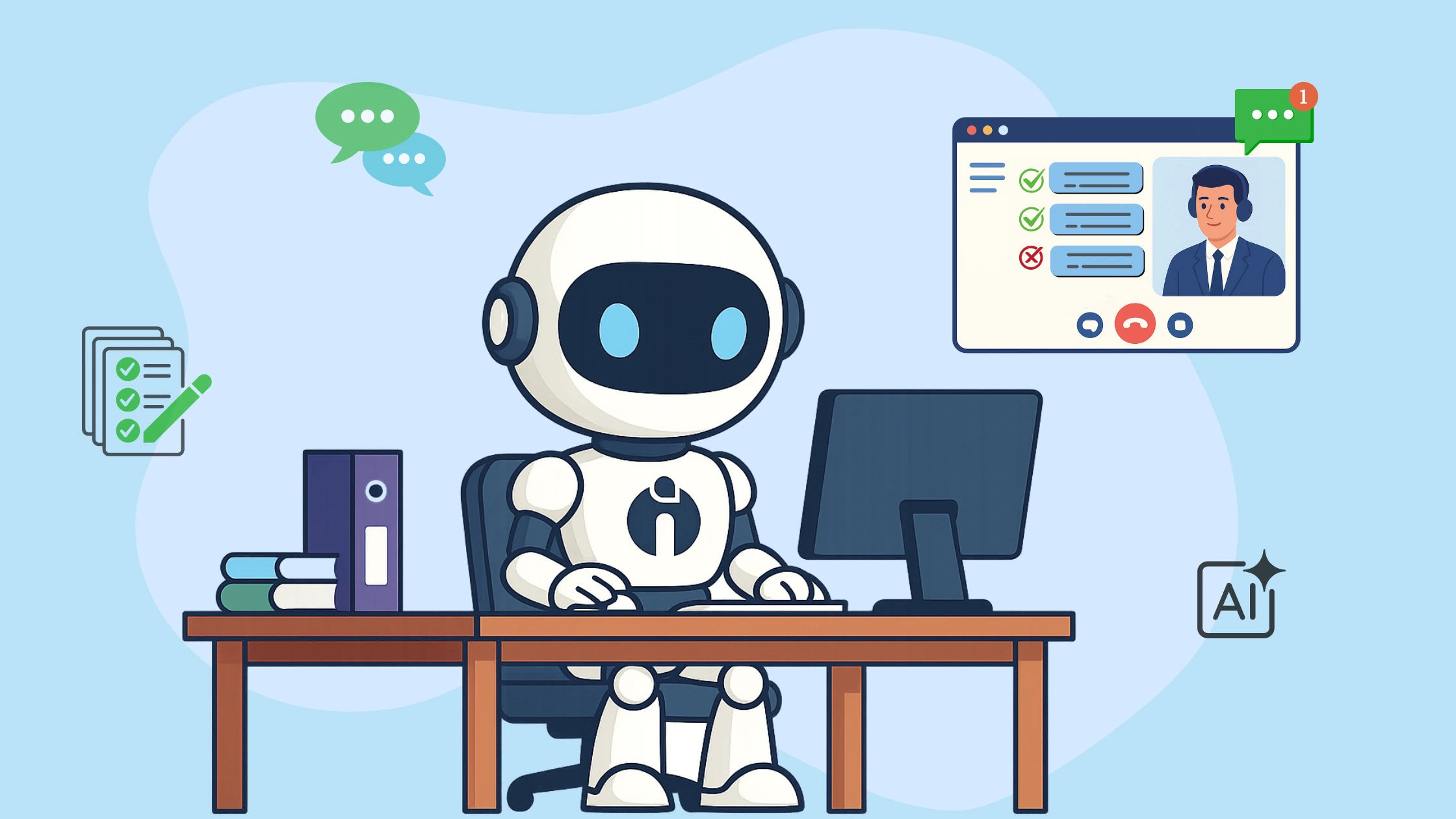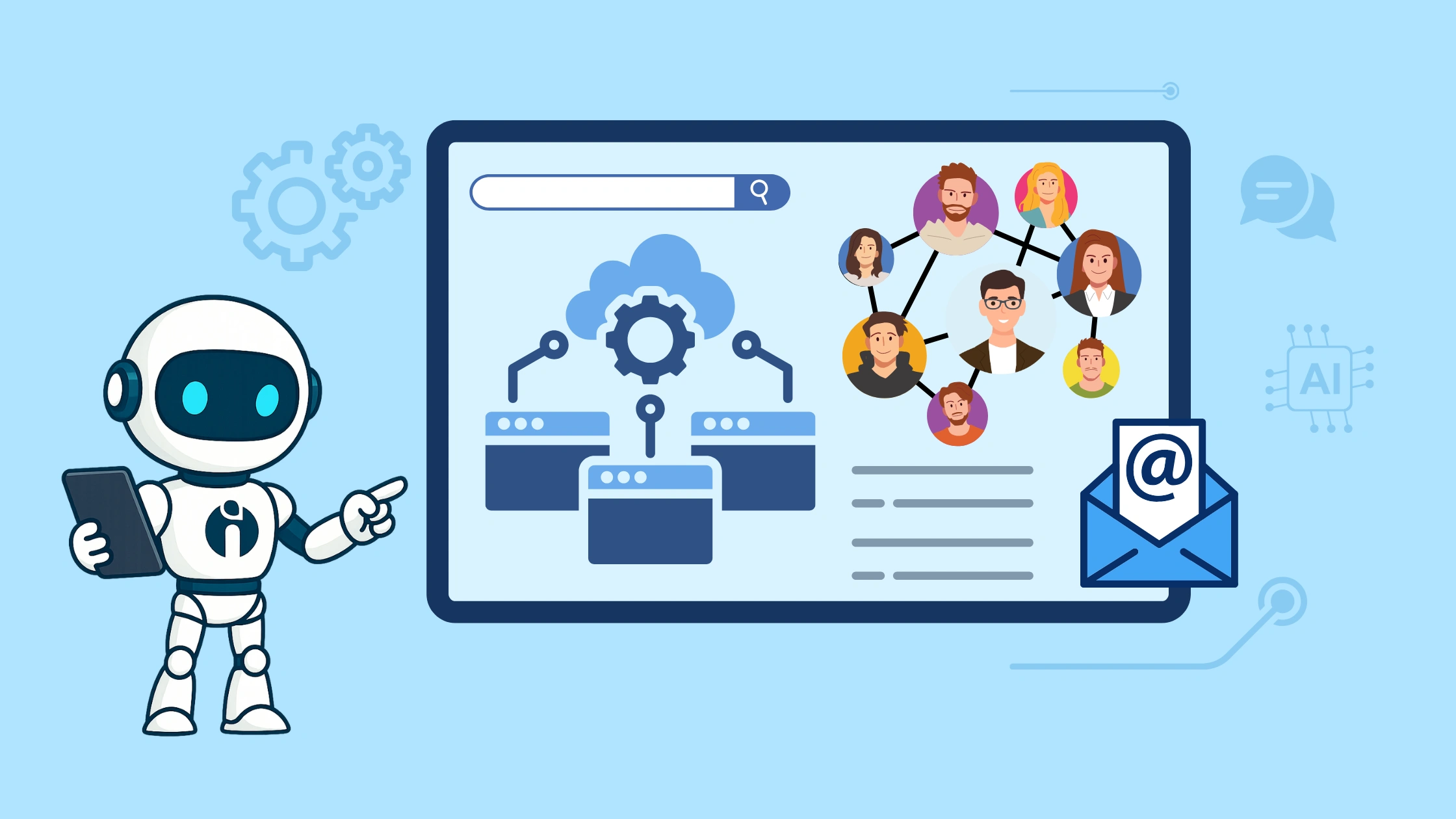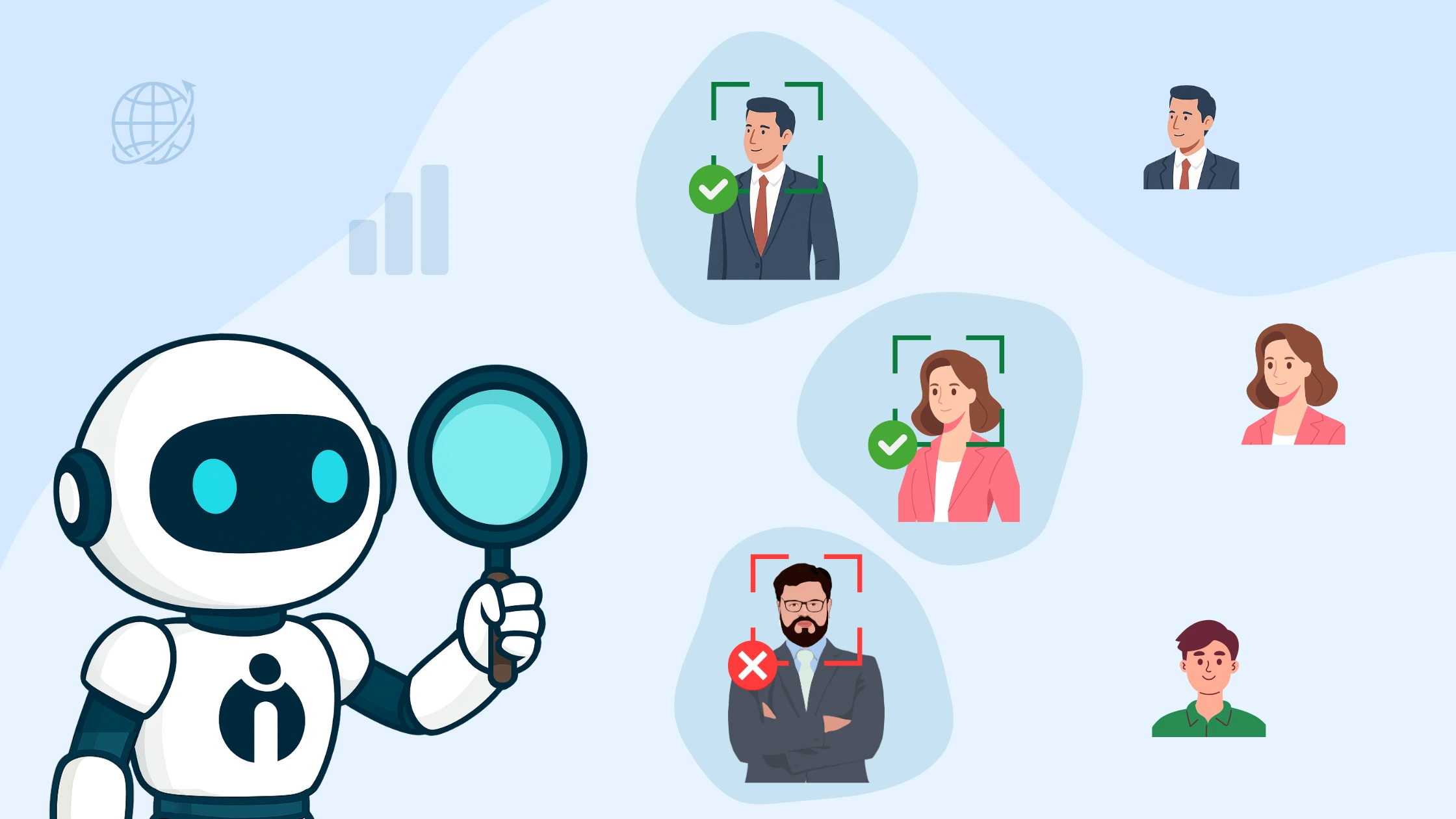TL;DR
- AI recruitment agents significantly enhance every stage of the hiring process from candidate discovery to performance analytics.
- Different types specialise in sourcing, engagement, screening, matching, strategic planning, candidate experience, and analytics.
- AI tools improve hiring speed, reduce bias, and enable more data-driven, personalised recruitment strategies.
- Integration of AI agents into ecosystems allows seamless workflows and greater automation potential.
Are you struggling to keep up with all the different types of AI recruitment agents flooding the market? You're not alone. The recruitment technology landscape is evolving at breakneck speed. Deloitte predicts that 25% of companies will be testing autonomous AI agents by 2026 and will expand to 50% by 2027.
AI has fundamentally changed the recruitment landscape, and it’s becoming an essential component of the modern talent acquisition toolkit. The staffing industry clearly reflects this shift, with 58% of firms experimenting with AI just last year. However, not all AI recruitment agents are created equal; each serves specific functions across the hiring journey.
In this guide, you'll discover the distinct categories of AI recruitment agents, understand their specialised functions, and learn how they can transform your hiring process. From candidate discovery to performance analytics, we'll break down exactly what each type of AI agent does and how you can leverage them for recruitment success.
Core Types of AI Recruitment Agents
Understanding the different types of AI recruitment agents first requires recognising their fundamental categories. Unlike traditional software, these AI-powered agents are designed with specific capabilities that determine how they function in the recruitment ecosystem.
AI recruitment agents fall into distinct categories based on their fundamental design and functionality. When examining these technologies, you'll find they're organised primarily based on their interaction style, technical capabilities, and the recruitment functions they serve.
The adoption of these technologies is already substantial. According to research, 87% of companies worldwide use AI in their recruitment processes. Furthermore, within HR departments experimenting with AI, 70% are applying it specifically to talent acquisition.
1. For Candidate Discovery and Sourcing
The foundation of successful recruitment begins with finding the right candidates. AI agents in this category excel at discovering qualified talent from vast data sources, significantly reducing the time recruiters spend on manual searches.
Resume Sourcing AI Agent for Recruitment Success
Resume sourcing AI agents transform how recruiters identify qualified candidates. These intelligent tools scan internal and external databases to uncover talent that matches specific job requirements. Instead of relying on complex Boolean searches, you can use natural language to describe precisely what you're looking for – just as you would explain it to a colleague.
Modern resume sourcing agents don't just find candidates, but they also evaluate them. An AI sourcing agent automatically ranks candidates based on their fit for a role, which saves recruiters considerable time in the screening process.
Talent Market Mapping AI Agent for Executive Search
For executive search recruitment, talent market mapping agents provide unprecedented visibility into leadership talent pools. These sophisticated tools create comprehensive maps of executive talent across industries and geographies.
This AI-driven agent scans and validates the backgrounds of senior leaders. It also processes hundreds of public and proprietary data sources to verify executive backgrounds.
Competitor Research AI Agent for Strategic Talent Mapping
Understanding your talent competitors has become increasingly vital in today's competitive hiring landscape. Competitor research AI agents analyse other companies' hiring patterns, organisational structures, and leadership profiles to give you strategic insights.
These agents identify hidden competitors in adjacent industries or geographies that might not be obvious rivals for talent. Beyond simply tracking competitors, they analyse what makes them attractive to candidates and how your employer brand compares.
2. For Candidate Engagement and Communication
Modern recruitment success hinges on effective communication with candidates. After finding potential talent, your ability to engage, connect, and nurture relationships determines whether top candidates join your team or look elsewhere.
Recruitment Outreach AI Agent: Automating Candidate Engagement
Recruitment outreach AI agents transform how you connect with potential candidates via outbound. These sophisticated tools enable personalised communication at scale, a task previously impossible for human recruiters alone.
Recruiters using AI-powered personalisation tools experience up to 3x higher response rates from candidates. This effectiveness stems from the AI's ability to analyse a candidate's background, job search behaviour, and communication preferences to craft messages that feel relevant and timely.
Candidate Engagement AI Agent: Personalising the Hiring Journey
Once initial contact is established, candidate engagement agents maintain momentum throughout the hiring process. These AI tools provide immediate responses and personalised guidance at every touchpoint.
The value of responsiveness cannot be overstated 65% of job seekers report feeling more positive about companies that provide immediate responses. Accordingly, AI-powered chatbots and virtual assistants play a crucial role by:
- Answering frequently asked questions instantly
- Guiding candidates through application steps
- Scheduling and rescheduling interviews
- Providing real-time application status updates
The efficiency gains are remarkable. At Mastercard, automated interview scheduling reduced scheduling time by over 85%, with 88% of interviews scheduled within 24 hours.
Candidate Nurturing AI Agent: Building Long-Term Talent Pipelines
These specialised agents send personalised content, company updates, and relevant job alerts tailored to candidates' interests and career trajectories. For instance, if a marketing candidate wasn't selected previously, the AI might send them industry articles, company news, or invitations to relevant webinars.
The most sophisticated nurturing agents recognise key milestones in candidates' careers, sending them personalised messages for work anniversaries or certification achievements. These thoughtful touchpoints increase goodwill and keep your organisation top-of-mind for high-quality candidates.
3. For Screening and Assessment
Evaluating candidates effectively lies at the heart of successful recruitment. AI-powered screening and assessment tools now offer unprecedented accuracy and efficiency in identifying top talent while eliminating biases that frequently plague traditional hiring processes.
Prescreening AI Agent for Faster Candidate Shortlisting
Prescreening AI agents dramatically transforms initial candidate evaluation, significantly reducing the administrative burden on recruitment teams. These intelligent systems automatically screen applications, identify qualified candidates, and create shortlists based on job-specific criteria.
AI shortlisting reviews resumes faster and more accurately than humans, screening 1,000 applications in minutes versus the weeks required for manual processing.
Interview AI Agent: Smarter Hiring Conversations
Interviewing AI agents represents the next evolution in candidate assessment, enabling automated yet surprisingly human-like conversations with applicants. Initially, these tools were primarily used for pre-screening, but they've evolved to handle comprehensive structured interviews.
In these AI-powered interviews, candidates submit video responses to automated questions. The system then evaluates responses based on multiple factors:
- Words and language patterns used
- Voice clarity and tone
- Facial expressions and mannerisms
- Overall communication effectiveness
Contrary to concerns about impersonality, these systems often create fairer assessment environments. Every applicant receives identical questions and evaluation criteria, removing unconscious biases that frequently influence human interviewers.
Background Verification AI Agent in Recruitment
Background verification traditionally consumed weeks of manual effort involving paperwork, phone calls, and document reviews. AI has revolutionised this process by offering unprecedented speed and accuracy in candidate verification.
These specialised agents automatically verify qualifications, work history, and credentials processes that once required days or weeks now complete in hours. The technology employs several sophisticated approaches:
-
Optical Character Recognition (OCR) transforms physical documents into digital text, eliminating manual data entry
-
Natural Language Processing (NLP) analyses written content from references and public records
-
Machine learning systems identify patterns and potential concerns, becoming more accurate over time
For organisations hiring internationally, automated verification platforms efficiently handle multiple languages and time zones, creating consistent screening criteria across all candidates and reducing potential human bias.
4. For Matching and Optimisation
After discovering, engaging, and evaluating candidates, the crucial challenge becomes matching them precisely to the right roles. Advanced AI agents now excel at this critical function, going beyond traditional methods to revolutionise how organisations connect talent with opportunities.
Matchmaking AI Agent: Connecting Talent with the Right Roles
Intelligent talent matching represents a fundamental shift from conventional recruitment approaches. These AI agents analyse vast talent pools to identify ideal candidates for any position, removing one of recruitment's most significant friction points: time.
Unlike basic keyword-matching tools, modern matchmaking AI agents evaluate multiple dimensions:
- Career trajectories and skill adjacencies
- Past performance indicators
- Semantic understanding of experience
- Potential cultural alignment
Companies are achieving better matches between candidates and roles, resulting in improved productivity and reduced turnover. For candidates, the technology helps them find opportunities that truly align with their skills and career goals.
Job Description Optimiser AI Agent for Recruiters
Creating compelling job descriptions traditionally involves striking a balance between detail and conciseness while ensuring compliance with legal requirements, a process often delayed by multiple revision cycles. AI job description optimisers transform this process, delivering significant improvements in minutes.
Harvard Business Review study reveals that approximately 61% of job descriptions contain problems ranging from unclear role descriptions to poor overall appeal. AI optimisers address these issues by enhancing clarity, inclusivity, and candidate engagement.
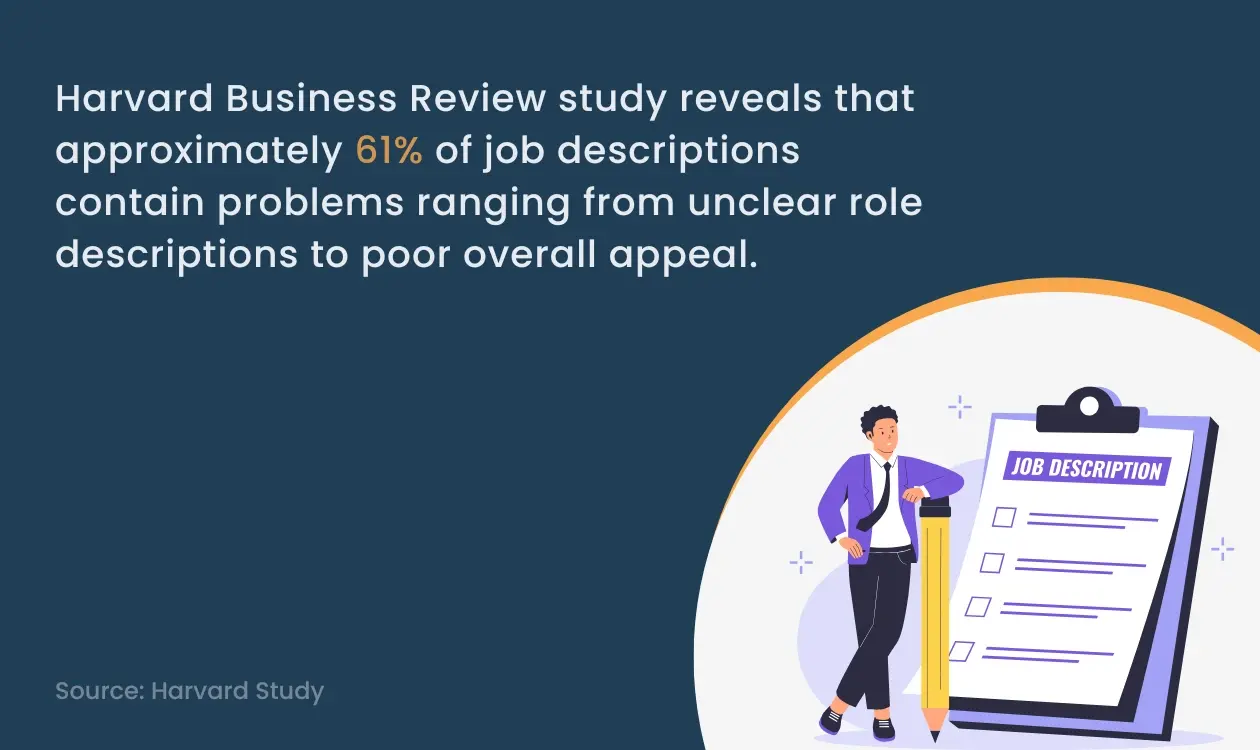
Although tools like ChatGPT seem like efficient solutions for generating job descriptions, they present considerable risks since they typically lack training on industry-specific datasets. Purpose-built AI job description optimisers offer more reliable results by focusing specifically on recruitment needs.
These specialised agents automatically evaluate and enhance:
- Clarity of roles and responsibilities
- Inclusive language that appeals to diverse candidates
- Engagement factors that attract suitable applicants
- Compliance with legal and company policy requirements
Through this optimisation, organisations connect with qualified candidates faster while reducing time-to-hire.
Skill Gap Analysis AI Agent: Smarter Workforce Planning
Strategic workforce planning necessitates a precise understanding of current capabilities in relation to future needs. Skill gap analysis: AI agents transform this process from guesswork to data-driven precision.
Traditional skill gap assessment methods rely heavily on self-reported surveys and manager evaluations, which are often subjective and outdated. AI-driven skill intelligence eliminates these problems through continuous analysis of workforce data.
These specialised agents automatically build dynamic skill profiles by analysing:
- Working history and project contributions
- Learning activities and certifications
- Performance data and applied skills
- Business data, including completed tasks and achievements
Throughout this process, the AI identifies both surplus and deficit skills across teams, departments, and geographic locations. Subsequently, it prioritises gaps based on business goals, project pipelines, and industry shifts.
5. For Strategic Planning and Analysis
Strategic intelligence sets top-tier recruitment apart from mere hiring activities. Forward-thinking organisations now deploy specialised AI agents to gain competitive advantages in executive hiring, compensation planning, and leadership continuity.
Company Research AI Agent for Executive Search Firms
Executive search firms increasingly rely on AI-powered research to deliver strategic value beyond traditional recruiting. These specialised agents analyse vast datasets to uncover hidden patterns and insights about target companies.
In addition to historical data analysis, these agents assess organisational structures, leadership team dynamics, and company performance indicators to inform targeted executive searches. This comprehensive approach enables much more precise candidate recommendations aligned with an organisation's unique needs.
Salary Benchmarking AI Agent: Smarter Compensation Decisions
Salary benchmarking AI agents transform compensation strategy through real-time data analysis. Unlike traditional methods that rely on static surveys and intuition, these AI tools continuously monitor market trends to ensure competitive pricing.
These agents provide valuable advantages:
- Analysis of hyperlocal salary data across diverse markets
- Real-time detection of emerging compensation trends
- Identification of potential pay equity gaps
- Location-specific adjustments reflecting cost differences
Indeed, the impact extends beyond efficiency. Companies that use AI to guide compensation decisions are 2.5 times more likely to offer market-competitive compensation, directly contributing to improved talent attraction and retention.
Succession Planning AI Agent for Leadership Hiring
Leadership transitions represent critical moments for organisational continuity. Succession planning AI agents address this challenge by identifying potential leaders and creating development pathways for them.
Traditional succession planning often relies on subjective assessments and narrow candidate pools. In contrast, AI-driven approaches identify hidden talent by analysing multiple dimensions:
- Performance metrics and leadership behaviours
- Project contributions and innovation markers
- Collaboration patterns and communication networks
- Learning activities and skill development
Indeed, these agents excel at identifying unconventional candidates who might be overlooked in traditional processes. One example demonstrated how an IT professional was successfully promoted to a senior finance role after the AI identified transferable skills developed during a special project.
6. For Candidate Experience Enhancement
Beyond basic functionality, AI recruitment agents now focus on creating exceptional experiences throughout the hiring journey. These specialised tools enhance impressions, foster inclusion, and strengthen organisational appeal to prospective talent.
Onboarding AI Agent - To Enhance Hiring Experience
The transition from candidate to employee onboarding often determines long-term success. AI-powered onboarding platforms automate administrative tasks while delivering personalised experiences from day one. These systems create tailored onboarding plans based on an individual's role, location, and specific needs.
Practical AI onboarding tools go beyond paperwork management. They automatically generate personalised "Day 1 Digests" containing mission statements, core values, team introductions, and location-specific information. Furthermore, these systems analyse engagement patterns to determine the optimal times for sending communications, thereby maximising effectiveness throughout the integration process.
Diversity & Inclusion AI Agent: Reducing Hiring Bias
Traditional hiring processes often suffer from unconscious biases that disadvantage certain groups. AI recruitment tools, when properly designed, minimise these biases by focusing exclusively on skills and qualifications. Organisations using AI-driven resume screening report a 70% increase in workforce diversity.
Key approaches include:
- Anonymising candidate information during initial screening
- Analysing job descriptions to remove biased language
- Evaluating candidates based solely on skills and experience
- Providing objective scoring systems for fair comparisons
Companies like Unilever demonstrate this potential through their 16% increase in workforce diversity after implementing bias-reducing AI technology.
Employer Branding AI Agent: Enhancing Talent Attraction
Unlike a first impression, Employer Branding matters the most. According to CareerPlug, 66% of candidates report that positive experiences influence their decision to accept offers, while 52% have declined offers following negative experiences. Employer branding AI agents address this challenge through personalised, authentic interactions.
The most advanced platforms scan billions of content pieces and analyse trillions of social signals to build AI language models specifically designed for talent communication. This technology ensures authentic employer branding, rather than generic messaging, and creates meaningful connections with potential candidates.
7. For Performance and Analytics
Data-driven intelligence fundamentally transforms recruitment effectiveness through specialised AI agents that measure, track, and optimise talent acquisition processes.
Recruiter's AI Assistant Agent: The Future of Talent Acquisition
Recruiter's AI assistants serve as powerful productivity engines for talent acquisition teams. These digital companions automate repetitive tasks while enhancing decision-making quality through intelligent recommendations.
The impact on efficiency stands out markedly. Organisations implementing AI assistants report time-to-hire reductions from 23 days to just 9 days. Throughout the entire process, these intelligent assistants handle hundreds of applications simultaneously, which directs recruiters' attention exclusively toward promising candidates.
Performance Tracking AI Agent for Talent Acquisition Teams
Performance tracking agents provide crucial visibility into recruitment effectiveness. Unlike traditional reporting, these specialised tools identify patterns in hiring success, pinpoint candidate drop-off points, and evaluate the effectiveness of sourcing channels. Throughout the talent acquisition lifecycle, they collect comprehensive data enabling continuous process refinement.
Predictive analytics capabilities further elevate strategic planning, forecasting future hiring needs, identifying skills gaps, and optimising talent allocation proactively. Meanwhile, advanced visualisation tools present insights clearly to stakeholders, fostering a data-driven decision-making culture.
How These AI Agents Work Together in Modern Recruitment
Even though there are challenges in the AI recruitment Agents adoption, the true power of AI recruitment agents emerges when they operate as a directed system rather than isolated tools. Leading organisations now integrate multiple specialised agents to create seamless recruitment workflows that mimic human teamwork while exceeding human limitations.
Creating an Integrated AI Recruitment Ecosystem
Recruitment technology is rapidly evolving beyond standalone solutions toward comprehensive AI ecosystems. These integrated systems enable AI agents to pass information seamlessly between different stages of the hiring process, ensuring a more connected and intelligent process.
By 2030, experts project recruitment will become at least 50% more automated than today, as organisations increasingly map data flows between AI recruitment tools and other HR systems, including applicant tracking systems, onboarding platforms, and HRIS.
Sequential vs. Parallel AI Agent Deployment
Organisations implement AI recruitment agents through distinct orchestration patterns. The sequential pattern chains AI agents in a predefined order, with each agent processing the output from the previous one, making it ideal for multistage processes with explicit linear dependencies.
On the other side, the concurrent pattern runs multiple AI agents simultaneously on the same task, reducing overall time while providing comprehensive coverage. For complex decisions, the group chat pattern enables multiple agents to collaborate through structured conversations, similar to human recruitment teams discussing candidates.
Measuring Success Across Different Agent Types
Effective measurement requires connecting metrics directly to strategic goals. Organisations should track both technical performance (uptime and accuracy) and business impact (time saved and cost reduction). Organisations using AI recruitment tools report recruiter capacity rising by approximately 54%, highlighting these systems' transformative potential when properly implemented and measured.
Conclusion
AI recruitment agents are transforming how companies attract, assess, and hire talent by streamlining every stage of the recruitment process. From sourcing and engagement to screening and strategic planning, these tools offer speed, accuracy, and scalability that traditional methods can’t match.
Rather than replacing human recruiters, AI empowers them to focus on more strategic tasks. By choosing the right mix of agents aligned with your goals, you can build a more efficient, data-driven, and candidate-friendly hiring process that delivers better results in less time.
Frequently Asked Questions (FAQs)
1. What are AI recruitment agents, and how do they function?
AI recruitment agents use artificial intelligence to automate tasks like screening resumes and scheduling interviews, making hiring faster and more efficient.
2. What are the different types of AI recruitment agents?
Types include resume screening, candidate matching, interviewing bots, and onboarding assistants, each focusing on different recruitment stages.
3. How do AI recruitment agents improve the hiring process?
They speed up candidate screening, reduce bias, enhance communication, and provide data-driven insights for better hiring decisions.
4. Are there any concerns associated with AI recruitment agents?
Concerns include potential algorithm bias, lack of transparency, and impersonal candidate experiences if overused.
5. How can companies ensure ethical use of AI recruitment agents?
Companies should audit AI systems regularly, maintain human oversight, ensure transparency, and comply with relevant regulations.







